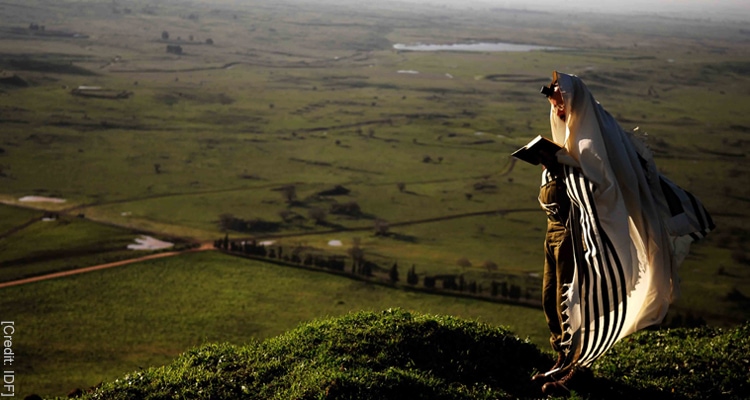Taking Responsibility
Yael Eckstein | May 17, 2020

When the foundations are being destroyed,
what can the righteous do? — Psalm 11:3
In honor of my father, Rabbi Yechiel Eckstein, and his lifework helping Christians understand the Jewish roots of their faith, I offer you one of his devotional teachings from the beloved Psalms.
Maybe you’ve seen the following satirical illustration about personal responsibility. The first frame shows a picture of an obese man eating a burger and fries with the text: “McDonalds made me fat.” In the next frame, the same man is seen chain-smoking cigarettes with the text: “Phillip Morris gave me cancer.” Next, the man is pictured driving his car into a wall while the text explains: “Jack Daniels wrecked my car.” In the last scene, the man appears livid as the text reads: “Now they must pay for all the suffering that they caused!”
It’s much easier to blame others than to take responsibility for our own actions. But in the end, we harm ourselves more than those we blame.
Psalm 11, written by King David, is primarily about Doeg, the chief assistant to King Saul. In particular, this psalm was written in response to a horrible deed committed by Doeg with Saul’s consent. They slaughtered the entire city of Nob, a city of priests. Nob’s crime? Helping David, the king’s sworn enemy. However, to make matters even worse, Doeg and Saul actually blamed David for the city’s plight. It was his fault, they claimed — David forced their hand by placing the people of Nob in that situation when he sought help from them.
This terrible situation is alluded to in the verse: “When the foundations are being destroyed, what can the righteous do?” The “foundations” are the priests who are the bedrock of the nation of Israel. The righteous person is David. Literally translated from the original Hebrew, the verse reads: “What has the righteous done?” In other words, David — the righteous one — was not to blame for this atrocity.
While Doeg and Saul sought to place the responsibility on his shoulders, David was wiser. He asserted: “The LORD examines the righteous, but the wicked, those who love violence, he hates . . . On the wicked he will rain fiery coals and burning sulfur” (vv. 5–6).
God knows the truth. God knows who is responsible and who is innocent. Those who shift the blame will ultimately bring damage upon themselves.
While it may be tempting to shirk responsibility, we cannot escape the results of our actions. So while it may seem easier to hide from accountability, in the end it only complicates our lives. It is only when we accept responsibility for our actions that we can rectify our mistakes. The moment we take responsibility for our lives is when we can change almost anything. It’s only in owning up to our failures that we can truly succeed.
Your turn: This week, Israel celebrates Jerusalam Day — Yom Yerushalaym — the reunification of Jerusalem after the Six-Day War in 1967. Find out how much you know about God’s Holy City by taking our quiz.
